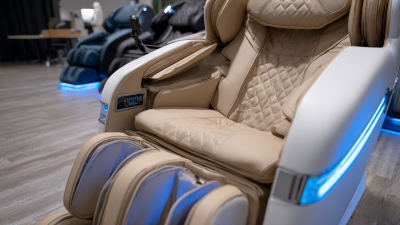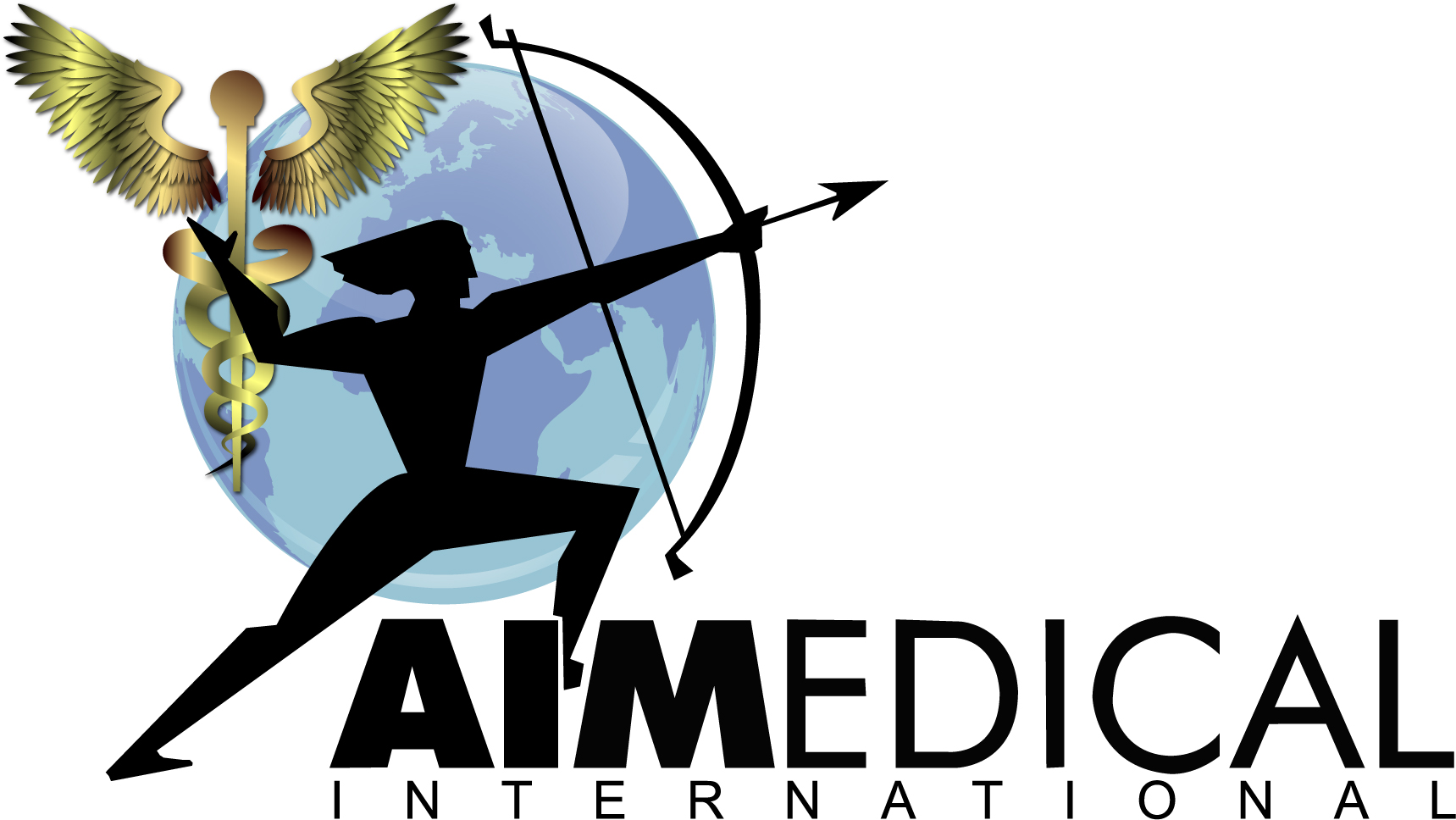How to Choose the Best Used Tms Machine for Your Business Needs
When it comes to expanding your business's offerings in the field of mental health care, investing in a Used TMS Machine for Sale can be a game-changer.
Transcranial Magnetic Stimulation (TMS) therapy has gained significant traction due to its effectiveness in treating various mental health conditions, and finding the right machine for your practice is essential for delivering high-quality care. However, navigating the market of used TMS machines can be overwhelming, especially with the wide variety of options available.

In this blog, we will delve into the critical factors to consider when choosing the best-used TMS machine for your business needs, from assessing the machine's condition and features to understanding regulatory compliance and support services.
With the right insights, you can make an informed decision that not only meets your clinical requirements but also enhances patient satisfaction and operational efficiency.
Understanding TMS Machines and Their Benefits for Businesses
Understanding TMS Machines and Their Benefits for Businesses
Transportation Management Systems (TMS) have emerged as vital tools for businesses, especially in the logistics and supply chain sectors. As companies increasingly seek to optimize operations, TMS technologies are instrumental in ensuring safe shipping, reducing costs, and enhancing warehouse performance. According to industry reports, companies that implement effective TMS see an average cost reduction of around 10-15% in their supply chain operations, promoting both efficiency and sustainability.
When selecting the right used TMS machine for your business, consider the following tips: First, assess your specific business needs, including the scale of operations and types of shipments. A system that might work well for a small business could be insufficient for a larger operation. Second, ensure the TMS can integrate seamlessly with existing software solutions to provide comprehensive data analysis and visibility across supply chain activities.
Recent advancements in AI also reveal that integrating TMS with artificial intelligence can elevate operational capabilities by predicting demand fluctuations and optimizing inventory management. By leveraging these technologies, businesses can further enhance their logistics efficiency and improve overall customer satisfaction, illustrating the critical role TMS plays in modern business strategies.

Key Factors to Consider When Selecting a Used TMS Machine
When selecting a used Transcranial Magnetic Stimulation (TMS) machine for your business, it's crucial to evaluate several key factors to ensure it meets your needs effectively. First, consider the machine's condition and maintenance history. A well-maintained device will not only perform better but also require fewer repairs over time. Requesting service records and conducting thorough inspections can help you gauge the machine's reliability and longevity.
Another important factor is the technology and features of the unit. TMS machines have evolved, with newer models offering advanced capabilities such as neuronavigation and patient management software. Ensure the technology aligns with the treatments you plan to offer. Assessing the compatibility of the machine with your existing systems can also streamline operations and improve patient outcomes.
Lastly, evaluate the vendor's reputation and support services. A trustworthy seller will provide documentation, warranty options, and ongoing technical support. Building a relationship with a reliable vendor not only aids in the initial purchase but can be beneficial for future equipment upgrades or service needs. Always inquire about their experience in the field and seek reviews or testimonials from other users.
How to Choose the Best Used TMS Machine for Your Business Needs
| Factor | Description | Importance Rating (1-5) |
|---|---|---|
| Machine Condition | Check for wear and tear; ensure the machine functions well. | 5 |
| Warranty | Consider if there is any remaining warranty or if you can purchase one. | 4 |
| Cost | Assess if the price fits your budget and offers good value for the condition. | 5 |
| Time Since Manufacture | Older models might lack modern features; consider technology updates. | 3 |
| Service History | Evaluate maintenance records to understand machine reliability. | 4 |
| Vendor Reputation | Research the supplier to ensure they have a good track record. | 5 |
| Compatibility with Current Systems | Ensure the machine integrates well with your existing equipment. | 4 |
Assessing the Condition and History of Used TMS Equipment
When selecting a used Transcranial Magnetic Stimulation (TMS) machine for your business, it's crucial to assess its condition and history thoroughly. Start by requesting the machine’s maintenance records. This documentation offers insights into past repairs and upgrades, ensuring the equipment has been well cared for. A machine with a consistent maintenance log suggests reliability and less risk of malfunction, which is vital for your practice's integrity.
Another important factor is the machine's usage history. Inquire about the previous owner’s client load and frequency of use. Machines that have been used heavily may show signs of wear and tear, affecting their performance. Make sure to check the machine for any physical damage and ensure it has undergone recent calibration for optimal operation.
Tips: When inspecting the equipment, look for any signs of rust, loose parts, or wear marks. Additionally, test the machine if possible, as firsthand experience can reveal operational issues that aren’t apparent on paper. Lastly, consider the warranty or service agreement options available for used machines, as this can provide peace of mind for your investment.

Evaluating the Features and Technology of Various TMS Models
When evaluating the features and technology of various Transcranial Magnetic Stimulation (TMS) models, it is crucial to consider the specific needs of your practice. Each TMS machine offers a unique set of capabilities, such as pulse frequency, coil design, and treatment protocols. For instance, some models utilize advanced navigational systems that enable precise targeting of brain regions, which can enhance the effectiveness of treatment. Additionally, the type of coil used can influence the depth of stimulation and overall efficacy, making it essential to choose a model that aligns with your therapeutic goals.
Furthermore, understanding the technological advancements in TMS machines can help you make a more informed choice. Many contemporary devices feature integrated software that allows for seamless patient management and data tracking, enhancing treatment customization. Moreover, consider the machine’s ease of use and the quality of training support provided by the manufacturer. Features like intuitive interfaces and robust customer service can significantly contribute to a smoother operational experience and better patient outcomes. By carefully assessing these elements, you can select a TMS machine that not only meets your business needs but also optimally serves your patients.
Comparison of Used TMS Machine Features
The bar chart below illustrates the evaluation of various features of used TMS machines based on common criteria such as technology integration, ease of use, maintenance requirements, and customer support. Each model is rated on a scale from 1 to 10, providing a visual comparison to assist in choosing the best machine for your business needs.
Budgeting for Purchase and Maintenance of a Used TMS Machine
When considering the purchase of a used TMS (Transcranial Magnetic Stimulation) machine, budgeting for both the initial investment and ongoing maintenance is crucial. Used machines can offer significant cost savings, but it's essential to allocate funds wisely. First, determine your budget by evaluating how much you're willing to spend upfront on the machine itself, taking into account the depreciation of older models. Keep in mind that the market for used TMS machines can vary widely in price depending on factors like brand, model, and condition.
Tips: Always set aside an additional 15-20% of the purchase price for immediate repairs and calibrations that may be necessary after acquiring a used machine. This proactive approach will help you avoid unexpected costs later on.
Equally important is planning for ongoing maintenance. Regular servicing ensures that your TMS machine operates at peak efficiency and adheres to safety standards.
Tips: Invest in a comprehensive maintenance plan or budget for annual service checks. This not only prolongs the machine's lifespan but also enhances the quality of patient care you provide. By balancing your budget effectively, you can enjoy the benefits of TMS technology without breaking the bank.
Related Posts
-

Innovative Solutions for Finding the Best Used Tms Machine for Sale Globally
-

Ultimate Checklist for Sourcing the Best Used TMS Machines: Key Features and Market Insights
-

Ultimate Checklist for Non Invasive Brain Stimulation Techniques You Shouldn't Miss
-

Unlocking Global Trade Opportunities with Emg Systems at the 137th Canton Fair
-

Unlocking the Benefits of Transmagnetic Stimulation for Your Global Sourcing Needs
-

Evaluating the Best Surface Emg Machines: Key Features and Performance Insights
